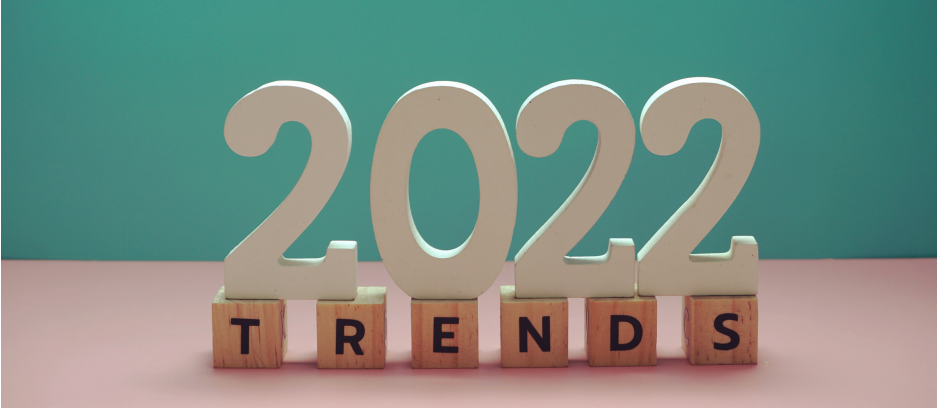As trends shift and more companies than ever turn to innovative marketing strategies— 90% of all marketers find ROI from influencer marketing to be better than other marketing channels— more and more startups are leveraging influencer marketing for rapid growth.
2020 was a pivotal year for influencer marketing— venture capitalists got on board with the Influencer world. Companies like Cameo and Moe Assist raised upwards of $50M in VC funding and the industry as a whole grew from a $1.7B valuation in 2016 to $13.8B in 2021.
Influencer marketing isn’t just for retail and eCommerce anymore. As the industry evolves and marketing strategists are developing new ways to draw attention and customers to their brand, startups, and tech companies are beginning to reap the benefits of influencer marketing as well.
When done correctly, working with social content creators and digital leaders has the power to boost your startup’s image and get your products in front of a new audience. Sophia Mateeva, startup founder/advisor, finds that the quality of consumers generated by influencer campaigns are higher quality and more engaged than leads from traditional social advertising channels. She advises startups to focus on engagement rather than strictly follower count. Social content campaigns have the power to make your brand more authentic and trustworthy to your followers, customers, and potential future clients.
The industry has evolved past the typical B2C Instagram imagery that we all know and love.
Now, brands and creators are creating long-term partnerships, using leaders with impact to launch new companies, and leveraging startup funding to grow an audience of loyal brand followers and product advocates.
Influencer Marketing Strategies for Startups
Running a successful campaign is all about honing your strategy to maximize ROI and make the best use of startup funding for marketing goals. As a startup, it may take time to master the art of the influencer campaign. To set yourself up for success, keep these tips in mind when designing your strategy.
1. Determine your Campaign Goals
Before you can start a partnership with an Influencer, you first need to set your campaign goals. Without goals and predetermined KPIs, you run the risk of creating an aimless campaign, and losing out on your hard-won fundraising dollars. Setting goals will save you time (and headaches) in the long run, and will better prepare you to overcome any roadblocks you face while navigating your campaign. Common goals for startup campaigns include:
- Gain customer insights by monitoring engagement patterns
- To reach a previously untapped demographic
- To widen your audience by increasing exposure
- Improved conversion rates
- Increased brand awareness
- Increased traffic to your website
- Increase customer engagement across platforms
2. Choose your Target Audience
Once you have your goals in mind, it’s time to set sights on your target audience. Whether your goal is to increase audience exposure or boost traffic to your website, who your ideal audience is matters. Your audience will dictate the language you use during your campaign, how you communicate with your influencer partner and will play a large part in determining whom you choose to partner with.
When choosing your target audience for your campaign, keep in mind the demographic, interests, and online behavior of your buyer personas. Remember, the Influencer you choose should appeal to your target audience, not just their existing followers.
3. Picking your Influencer
Your target audience should lead you right to your ideal Influencer. A good rule of thumb is that if you can’t find a candidate with the ability to reach your target audience, keep looking. It doesn’t matter how many followers an Influencer has if their followers aren’t composed of people who are interested in your company.
The next decision for you to make, depending on goals, is whether or not you want to work with a combination of influencer tiers and across various platforms.
A lot of startups find success working with a mix of mid-tier, macro, mega, and celebrity Influencers to kick off the launch with a bang and boost awareness for your brand in a big way.
4. Diversify your Content
All marketing campaigns benefit from a creative approach, an element that is especially true for startups/emerging brands running their first influencer campaigns. Influencer marketing has the possibility of feeling stale or unnatural— as the culture becomes desensitized to sponsored posts, the general audience is more likely to notice them.
To keep your audience entertained and surprised, don’t be afraid to mix up the content you produce for your campaign by incorporating more personal and creative content than you do with your other marketing efforts. Content like videos, interviews and behind-the-scenes features can attract an audience that is used to interacting with the more personal content generated by influencers.
5. Offer Samples or Trials for Influencers to Try
New companies looking to introduce themselves to the public through Influencer marketing can show customers that you are a trustworthy organization by providing them with an opportunity to try products out for themselves (live and in front of their audience.) Popular with retail and makeup companies, many content creators will do live demos or giveaways for sponsored products, generating awareness and trust in your products.
Top Startup Influencers
Many startups have been able to successfully integrate influencer marketing into their overall marketing strategy. Let’s take a look at some of the top startup influencer campaigns to see how they pulled it off.
Fabletics
Source: Instagram
JustFab started as an eCommerce fashion retailer startup that, by partnering with actress Kate Hudson to co-found their athleisure line Fabletics, was able to successfully grow into the multifaceted global organization that it is today.
Aviation Gin
Source: Instagram
Partnering with celebrity ambassador Ryan Reynolds brought some much appreciated worldwide attention to Portland’s own Aviation Gin, really showing the power of a well-aligned influencer partnership.
Away
Source: Instagram
Known today as one of the highest funded female-backed startups, Away partnered with celebrities that share their brand mentality— like Serena Williams— to boost awareness for the luggage brand to a whole new level.
The key to running successful influencer marketing campaigns is a creative strategy and genuine partnership. For even more Influencer insights, see what we have to say about The Power of Influence.






SUBMIT YOUR COMMENT